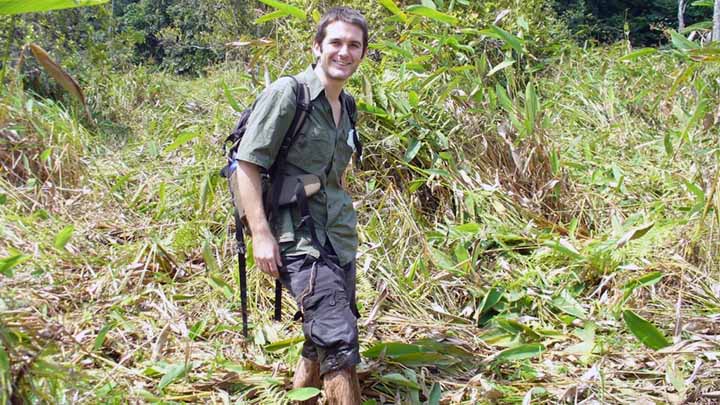Improve your language skills.
Most of our biological and biomedical sciences undergraduate courses can be studied with a modern language.
Joint language degrees involve a programme in which about two-thirds of your time is spent studying one of our undergraduate courses in biosciences. The remainder of your time is spent studying a language (French, German, Spanish, Italian, Japanese or Mandarin).
These four-year degree courses with a modern language include a year spent conducting research in a research institute or university in a country where the language you are studying is spoken. Your placement year, subject to satisfactory academic performance and placement availability, will take place between your second year and final year.
Studying a biological or biomedical degree with a modern language can enable you to:
Improve your language skills

Gain an advantage in today's competitive jobs market

Clarify your own career objectives

See how your subject is applied in the world of work

Eligibility
Extra requirements are needed to study a course with a modern language.
You must meet our standard entry requirements for the degree programme you are interested in studying, as well as the additional requirements for your language:
French, German, Italian or Spanish
At least Grade B at A-level in your chosen language or equivalent is required. In some cases where applicants are only eligible for an AAA offer, a grade A will be required.

Japanese or Mandarin
No prior knowledge is assumed, but evidence of linguistic proficiency is required (e.g. GCSE A* in a foreign language). Chemistry AS-level (grade B) is essential.

From our students
Callum
Callum talks about why he chose the BSc Biomedical Sciences with Spanish course and how he is currently finding his placement year in Spain.
Read the blog : Making the most of my BSc Biomedical Sciences with Spanish course.

Ed Wright
BSc in Zoology with a Modern Language student Ed discusses meerkats, monkeys and modern languages.

Michael Harris
BSc Genetics with a Modern Language student Michael reflects on his placement year in Japan.

Courses
Which degrees can I do with a modern language?
We offer degrees with a modern language in the following biosciences subjects. The below links will take you to the relevant 'with a modern language' course page (2026 entry) on The University of Manchester website.
Frequently asked questions
Useful information if you are considering a degree with a modern language.
This will depend on the language you choose. For most languages, you will need to acquire 20 credits per year, but this can be higher for certain other languages, such as Japanese, which requires 40 credits.
You will follow a typical biosciences timetable along with three one-hour language seminars per week, although this may vary depending on the language you choose.
Teaching and learning methods depend on the specific units that you choose. However, you will learn alongside other students taking a variety of language degrees at the University, giving you the opportunity to practice your skills with your fellow students and make new friends.
Placements are available at around 20 universities throughout Europe and in China and Japan.
Our staff will give you extensive help in finding placements, and your progress during your placement year will be actively monitored.
Course content
What will my course look like?
If you are registered for one of the degrees with a language, the proportion of language units that you are required to take will depend upon your qualifications on entry.
If you have an A-level in your chosen language at grade B or above, you will take 100 credits in biological sciences and 20 credits in your chosen language, excluding cultural units (route A).
If you do not have an A-level in your chosen language at grade B or above, you will take 80 credits in biological sciences and 40 credits in your chosen language, including cultural units (route B).
The placements are usually arranged via Erasmus+, a network of European universities to which Manchester belongs, or with partner Universities in Japan or China. The language placement coordinator will contact you during your second year to begin discussions about potential placements.
Language placements are for nine months (in Europe) or ten months (Japan and China).
How to apply
Select the right course on your application.
Apply through UCAS for the relevant four-year degree programme, which has 'with a Modern Language' in the title. For example, Biology with a Modern Language.
Explore more study options
Explore more study options
Alternatives to consider.
You can choose from a range of study options when you study biosciences at The University of Manchester
